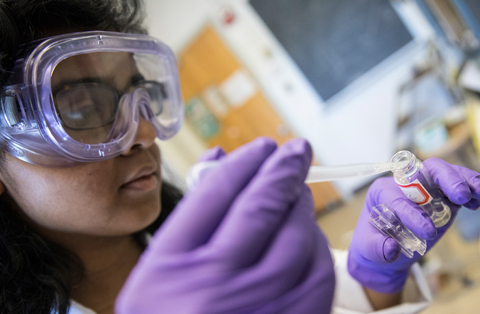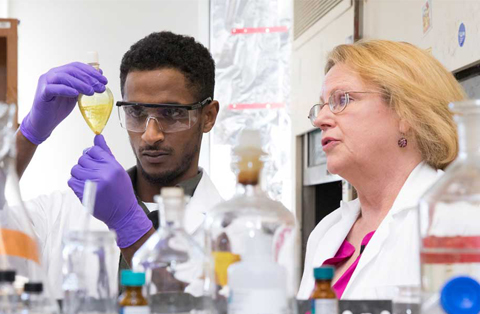Binghamton University Chemistry Department
Professor Whittingham Wins Nobel Prize in Chemistry
Distinguished Professor M. Stanley Whittingham and two others awarded the 2019 Nobel Prize in Chemistry for development of lithium-ion batteries.
The undergraduate program in chemistry offers BA and BS degrees with a BS/American Chemical Society certification option and with BS/emphases in biological and materials chemistry. The graduate program offers MA, MS and PhD degrees for students who are innovative, competitive and highly motivated in the traditional areas of analytical, inorganic, organic and physical chemistry, as well as other relevant interdisciplinary subjects.

Research in Chemistry
The Chemistry Department consists of a research-oriented faculty, postdoctoral fellows and over 50 graduate students in residence.

Smart Energy Building
A 114,000 square-foot facility accommodating research and development initiatives for the departments of chemistry and physics.

Biochemistry, BS
The biochemistry program at Binghamton University is a joint effort of the biological sciences and chemistry departments.